
Baltimore CITYPAPER
By Geoffrey Himes
O'Donel Levy remembers sitting on a stoop in the Gilmor Homes, the West Baltimore housing project, in the early '50s, watching his neighbor Ethel Ennis going off to one of her jazz gigs dressed in a glittery gown. It was proof positive that someone from Gilmor could have a career in music. He decided that's what he wanted.
That's what he got. He developed into one of the world's top soul-jazz guitarists, touring and recording with the likes of Herbie Mann, Jimmy McGriff, Richard "Groove" Holmes, and Ennis herself. Levy released six of his own albums on Sonny Lester's Groove Merchant Records in the '70s, and he led his own band at Switzerland's Montreux Jazz Festival for years.
Since a 2006 stroke, however, he has been confined to a wheelchair, his paralyzed left side unable to fret a guitar. He resides at the Summit Park Health and Rehabilitation Center in Catonsville, working hard on his agonizingly slow and uncertain recovery. To help pay for all these medical bills, many top jazz musicians--from Baltimore and far beyond--are staging benefit concerts for Levy at Sojourner-Douglass College this Sunday, Oct. 4. Despite his problems, though, the 64-year-old musician, "Butch" to his Baltimore buddies, remains irrepressibly upbeat. In the course of a long interview, he teases his wife and cracks jokes about food as if he were back on stage. He's not just a jazz musician, he insists; he's an entertainer.
"I'm not a blues player or a jazz player," he explains. "I'm more a combination. My father and his brother Roy used to sit around the living room and play those guitars when I was growing up. They would do those old foot-stomping blues like 'Caldonia, Caldonia, what makes your big head so hard?' I wanted to grab that guitar and play, too. When I was four or five, I would look at them and say, 'Boy I'm going to do that when I grow up.'"
He was gigging by the time he was 16, first with local saxophonist Boyd Anderson and then in a quartet with his pals from the Gilmor Homes: drummer Chester Thompson (who went on to play with Weather Report, the Pointer Sisters, and Genesis), organist Charles Covington, and vocalist Judd Watkins. They were basically an organ trio plus a singer, and because organ trios ruled the Baltimore music scene in the early '60s, the quartet thrived.
"I loved that B-3 sound," Levy recalls. "I grew up with it and it got in my ear. The organist has to tap out the bass line on those foot pedals, while the left hand runs chords and the right hand does the tune--confusing stuff but Charles was a genius at it. For a jazz guitarist, that's the best because there's room to shine. I knew George Benson when he was playing with Jack McDuff's organ trio at Paul's Mall in Boston. George asked if I would take his place because he was leaving to record with Creed Taylor."
The McDuff gig got Levy out of his hometown, and soon he was hired by one organist after another: McGriff, Holmes, and Charlie Earland. Levy was in demand because his muscular chording could hold down the rhythm when the organist was soloing, and Levy's melodic solos could hold a room's attention when it was his turn to take over.
Levy was leading his own quartet at the Pigfoot, Washington's jazz-guitar showcase, when this writer reviewed him in 1980. Levy sported a healthy afro and thick glasses and rested a hollow-body Gibson electric in his lap. He played fast, but his articulation was so crisp that the notes never blurred together; each one carried its individual sting. Amid the swarm of notes, the listener could always pick out the original melody of the song, whether it was a pop-soul hit like Bobby Hebb's "Sunny" or a jazz standard like Miles Davis' "So What."
That same year Herbie Mann auditioned Levy's trio at Blues Alley in Washington. The famous flutist was so impressed with Levy's playing and band leading that Mann hired the group for an upcoming tour. He was so taken with the guitarist's writing that four of the eight tracks on Mann's 1985 album for Atlantic, See Through Spirits, were Levy's compositions. The guest saxophonist on that session, David "Fathead" Newman, remembered Levy's writing and re-recorded "Keep the Spirits Singing" as the title track of his 2001 album.
"It's a vocalese number with a South American feel to it," Ethel Ennis says. "I love lines that are repeated because you want to hear them again, and that song has that. He always created good running lines, happy phrases--his fingers would just be flying. I'd always wanted to record that particular song with him, but I never got around to it before the stroke. So it is a loss."
When Mann's group toured the Far East, Levy was such a hit in Singapore that he was invited to return with his own group. That went over so well that a government official arranged a studio job and regular nightclub gig in the island city. The son of the Gilmor Homes moved to Singapore in 1989 and didn't return home for 10 years. When he did, he set up his own studio in Bel Air and was producing several album projects when he suffered a stroke on Oct. 20, 2006.
"Michael Matthews, a bass player, went by the studio," recounts the guitarist's wife Estella Ingram-Levy. "He saw Butch's car but he couldn't get in. So he got somebody to break down the door. He found Butch on the floor of the bathroom and Butch muttered, 'Call 911.'
"The stroke was massive, I'm telling you--they had to take part of his skull off to relieve the pressure on the brain. The physician didn't give him much hope, but he pulled through it. His left hand and his left leg now have feeling, but he still can't walk by himself. But he's in great spirits and he's optimistic."
This reporter first heard Levy when he was backing up Ennis at Annapolis' King of France Tavern in 1979. The guitarist had just come back from Los Angeles for the shows, which were being recorded for an album that was eventually released as Ethel. The highlight of the show--and the record--was an extended version of "Open Your Eyes You Can Fly," written by Chick Corea as a vehicle for Flora Purim. Ennis' version opened with Bob Wyatt clattering his percussion like a distant thunderstorm. Ennis held each high, trembling note as if in a house rattled by Levy's stormy chording. This led to a crackling duet between Levy's guitar and Covington's synthesizer. Finally Levy's solo broke into the open, a grand leap of invention that extended the melody beyond its usual boundaries.
"That comes from doing a lot of listening," Levy says today. "You have to mimic those Coltrane and Miles lines before you come up with your own. I used to buy Chick Corea's stuff and sit down and learn those lines. You never know what you're going to get into. When somebody says, 'Solo,' you've got to be ready to go."
O'Donel Levy - Playhouse





























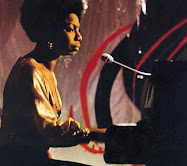

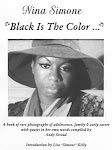

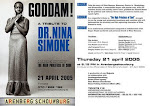

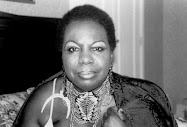






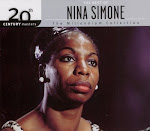



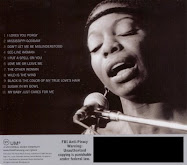
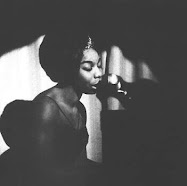

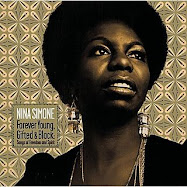









No comments:
Post a Comment